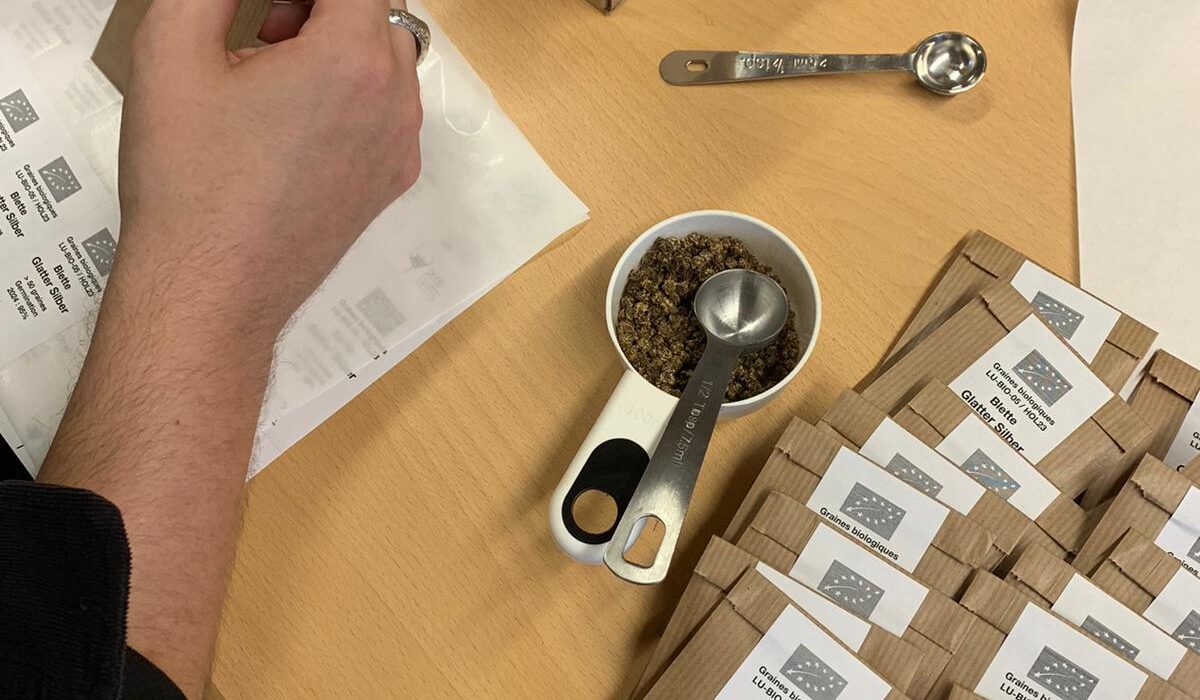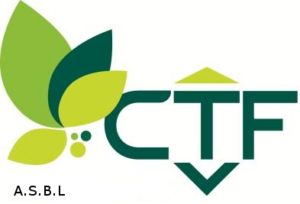
SEED Luxembourg Interview – English version
Locally produced seed for hobby gardeners
The season is starting and nurseries, garden centres and DIY stores are once again offering a wide selection of seeds from all over the world. But did you know that a great variety of seed is also produced here in Luxembourg? We spoke to Frank Adams from SEED about their 2025 seed distribution programme.
What does SEED stand for?
SEED is an abbreviation and stands for ‘Som fir d’Erhalen an d’Entwécklung vun der Diversitéit’, or seed to preserve and promote diversity. One of our aims as an association is to preserve and promote local food plant diversity. To this end, we sell locally produced vegetable seeds to hobby gardeners, community gardens and school gardens. However, the aim of our work is not commercial production, but a contribution to Luxembourg’s food crop diversity.
Where does the seed come from?
Our seed comes from various Luxembourgish gardens and are certified organic. It is produced without any pesticides so that the vegetable plants develop their own natural resistance to diseases, pests and unfavourable climatic conditions. It couldn’t be more local!
What else distinguishes you from commercial production?
Our seeds are distributed free of charge, as some of the varieties on offer are not registered on the official European seed list and their seeds are therefore not allowed to be sold under the current Luxembourg seed law. The seed farmers whose seeds are distributed via SEED produce using artisanal methods. This is a time-consuming process that incurs many costs. To honour the work of the seed farmers, it is possible to make donations.
Can you also become active?
Yes, of course! Local, organically produced seed make an important contribution to food crop diversity and food security. We hope that more people will actively participate in local seed production. Take a look at our website if you are interested.
And now the most important question: where do we get your seeds?
We have a few public distribution points, the addresses of which are listed on our website. Community gardens, school gardens and Gaart an Heem sections can place bulk orders of 20 bags or more directly with us, which will then be delivered by post.
However, as demand is constantly increasing and, as I said, we do not want to produce more and more seed, we can only distribute our seed while stocks last. Some varieties ‘sell out’ faster than others, and we cannot guarantee a full programme at the distribution points.
We would like to see more and more gardeners harvesting their own seeds.
Variety recommendations from SEED for 2025
Lingua di Fuoco nano bush bean: classic Italian borlotto bean that can be used in the kitchen in three ways: green pods, green seeds, dried ripe seeds.
Bush bean ‘Roi des Belges’: traditional Belgian variety, extremely robust and productive with tasty stringless pods.
Kale ‘Halbhoher grüner Krauser’: classic, indestructible variety. Easy to grow, harvest after overwintering until April. Mildly spicy flavour of the leaves, which contain a lot of vitamin C and can therefore also be eaten raw as a salad.
Cucumber ‘de Russie’: Variety with short fruits that are suitable for direct raw consumption as well as for salads / very fine flavour of the fruits, which remain very tasty even when overripe.
Beetroot ‘Tondo di Chioggia’: ‘decorative’ beetroot with red and white curled flesh / aromatic, pleasantly mild flavour, not as strong as beetroot / easy cultivation with a wide harvest window.
Lettuce ‘Radichetta’: Picking lettuce reminiscent of oak leaf lettuce that can be harvested many times, grows relatively large and shoots late.
Spinach ‘Winterriesen’: Variety that is mainly sown in late summer/early autumn and harvested in spring / several harvests are possible / easy cultivation that provides many vitamins and minerals.
Tomato ‘Ruthje’: relatively recent variety from northern Germany with exceptionally good flavour, fruit size between cocktail and salad tomato that is pleasant for harvesting and use.
Incidentally, it is relatively easy to obtain your own seed from all these varieties for subsequent years.
The complete list of all 2025 varieties on offer and details on how to donate can be found at seed-net.lu



